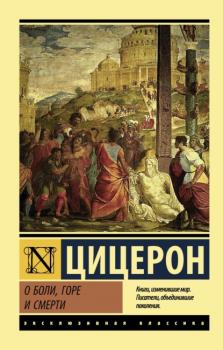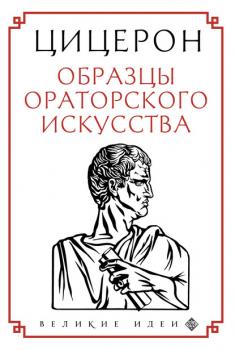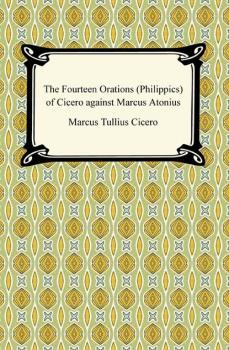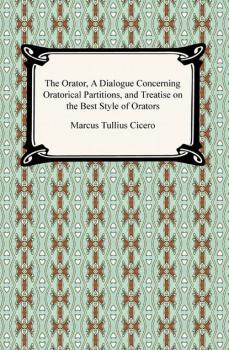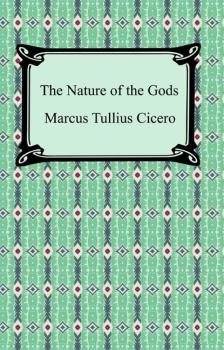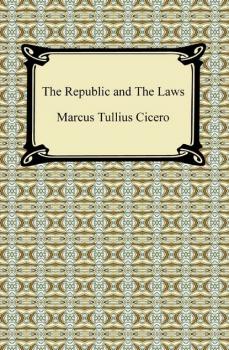Марк Туллий Цицерон
Список книг автора Марк Туллий ЦицеронFor Sextus Roscius of Ameria
"For Sextus Roscius of Ameria" by Charles Duke Yonge, Marcus Tullius Cicero. Published by Good Press. Good Press publishes a wide range of titles that encompasses every genre. From well-known classics & literary fiction and non-fiction to forgotten−or yet undiscovered gems−of world literature, we issue the books that need to be read. Each Good Press edition has been meticulously edited and formatted to boost readability for all e-readers and devices. Our goal is to produce eBooks that are user-friendly and accessible to everyone in a high-quality digital format.
О боли, горе и смерти
В этот сборник вошло большинство из чисто философских (без примеси политики) трактатов Цицерона, тексты которых, по счастью для нас, сохранились целиком или с совсем небольшими пропусками. Написанные в традиционной для Античности форме диалогов или собраний писем (условным «адресатом» которых в данном случае является сын Цицерона Марк), они в полной мере выражают несгибаемые, почти пуританские морально-этические принципы автора – первого в плеяде великих гениев римской стоической традиции, продолжившей и во многом изменившей стоицизм греческий. В формате PDF A4 сохранен издательский макет книги.
De Amicitia, Scipio's Dream
"De Amicitia, Scipio's Dream" by Marcus Tullius Cicero (translated by Andrew P. Peabody). Published by Good Press. Good Press publishes a wide range of titles that encompasses every genre. From well-known classics & literary fiction and non-fiction to forgotten−or yet undiscovered gems−of world literature, we issue the books that need to be read. Each Good Press edition has been meticulously edited and formatted to boost readability for all e-readers and devices. Our goal is to produce eBooks that are user-friendly and accessible to everyone in a high-quality digital format.
Образцы ораторского искусства
Марк Туллий Цицерон, названный современниками отцом Отечества, был в полной мере достоин так именоваться. Убежденный сторонник республики, человек, использовавший свои блестящие ораторские способности для защиты закона (и правды, как он ее понимал), Цицерон оставил огромное литературное наследие – труды по истории, философии, праву и, конечно же, речи. Его произведения дают представление не только о взглядах автора, но и о целой эпохе. В этой книге представлены несколько речей Цицерона, которые наиболее полно отражают его стиль, убеждения, философское обоснование политических взглядов. Современному читателю они будут интересны еще и как образцы красноречия, позволяющие воочию увидеть истоки современной риторики. В формате PDF A4 сохранен издательский макет книги.
The Fourteen Orations (Philippics) of Cicero against Marcus Antonius
Based upon the speeches of Demosthenes, who delivered several attacks on Philip II of Macedon in the 4th century BC, The Fourteen Philippics, or fiery, damning speeches delivered to condemn a particular political actor, were made by Cicero in 44 and 43 BC. In these speeches Cicero seeks to publically discredit Mark Antony while privately he spoke out against Antony’s role in the plot to kill Caesar. Ultimately these speeches would be Cicero’s downfall as he was killed in 43 BC and his head and hands were publically displayed in the Roman forum to discourage any opposition to the new Triumvirate of Octavian, Mark Antony and Lepidus.
Tusculan Disputations
A classic treatise of the philosophy of Stoicism, «Tusculan Disputations» are a series of books written by Cicero around 45 BC with the intent of popularizing philosophy in Ancient Rome. «Tusculan Disputations» consists of the following five books, which are presented here in their entirety: 1. On the Contempt of Death., 2. On Bearing Pain., 3. On Grief of Mind., 4. On Other Perturbations of the Mind., and 5. Whether Virtue Alone Be Sufficient for a Happy Life.
The Orator, A Dialogue Concerning Oratorical Partitions, and Treatise on the Best Style of Orators
Marcus Tullius Cicero was a Roman philosopher, statesman, lawyer, political theorist, and Roman constitutionalist who lived during the first century BC. Considered as one of the great minds of ancient Rome, Cicero was also a gifted orator and gave many famous speeches during his political career. In this book you will find Cicero’s treatises on oration including, «The Orator», «A Dialogue Concerning Oratorical Partitions», and «Treatise on the Best Style of Orators». These classic and enduring expositions on oration are at once useful for anyone trying to improve upon their own oratorical abilities and a revealing look at Cicero and oration during the time of ancient Rome.
The Nature of the Gods
Here is presented Cicero's theological exposition, «The Nature of the Gods», in which the ancient Roman philosopher reflects upon the philosophical questions of religion. «He was, he says, urged to them as a means of relief from the irksome political inactivity to which he was reduced by the supremacy in the state of Julius Cæsar, and he also hoped to find in them a distraction from the grief caused him by the death of his daughter Tullia. He felt, too, that for the sake of the national credit it was right that the philosophy of Greece should be brought before his countrymen in their own tongue, and in the case of the special branch of philosophy discussed in the 'De Natura' he had another and more pressing motive. For it was necessary there to consider those theological questions the answers to which determined the character and even the possibility of religion, and therefore, in his opinion, of morality as well.»
The Republic and The Laws
This work contains two of Cicero’s most important political writings, «The Republic» (De re publica) and «The Laws» (De Legibus). In «The Republic», or «On the Commonwealth», Cicero crafts a Socratic dialogue in six books on the subject of Roman politics. Cicero discusses the history of Roman politics and its constitution, the role of justice in government, the types of constitutions, the role of education, and the ideal citizen in a republic. In «The Laws» we find another Socratic dialogue which discusses the laws and in which Cicero expounds on his theories of natural law and of harmony among the classes. Only three books of «The Laws» remain from an indeterminate number that were originally written. Together these books will enlighten the reader as to the foundation of Cicero’s political philosophy and give one insight into the early democratic ideals which form the foundation of western political thought.


